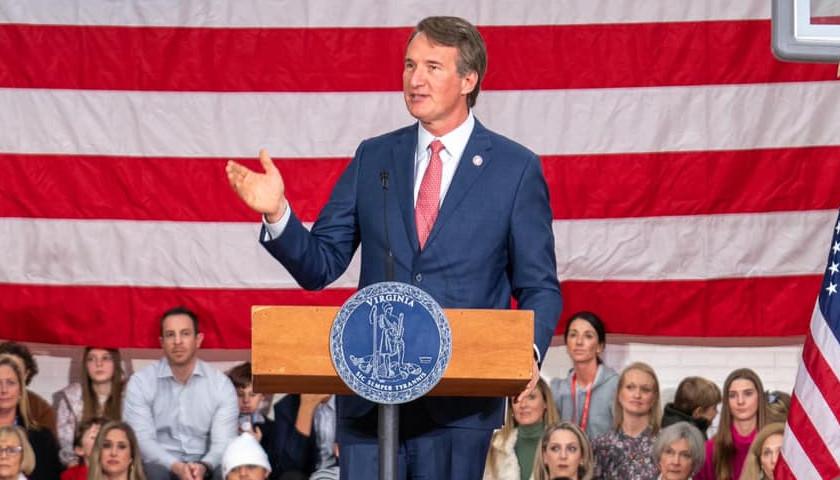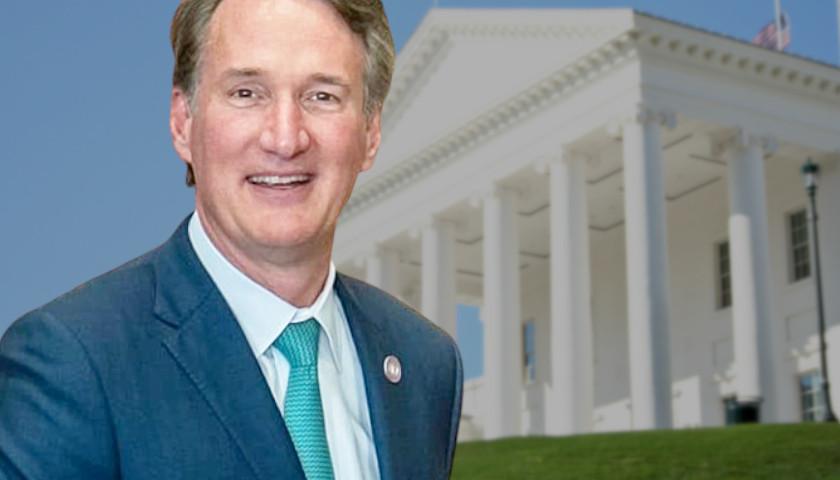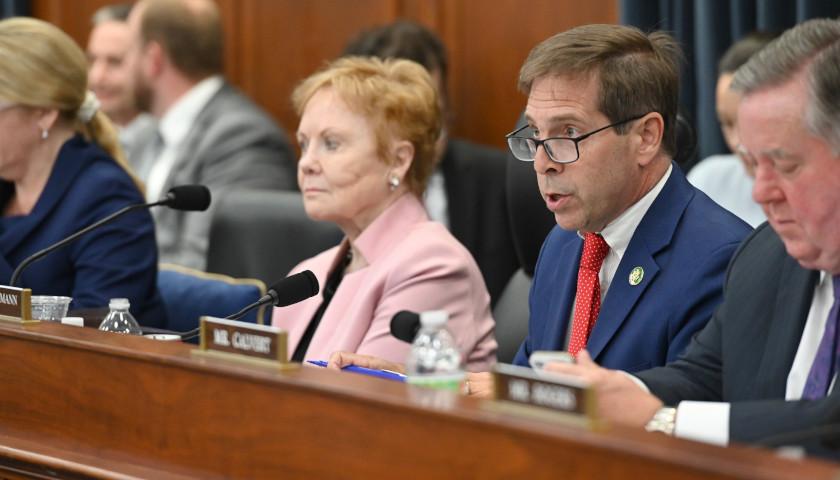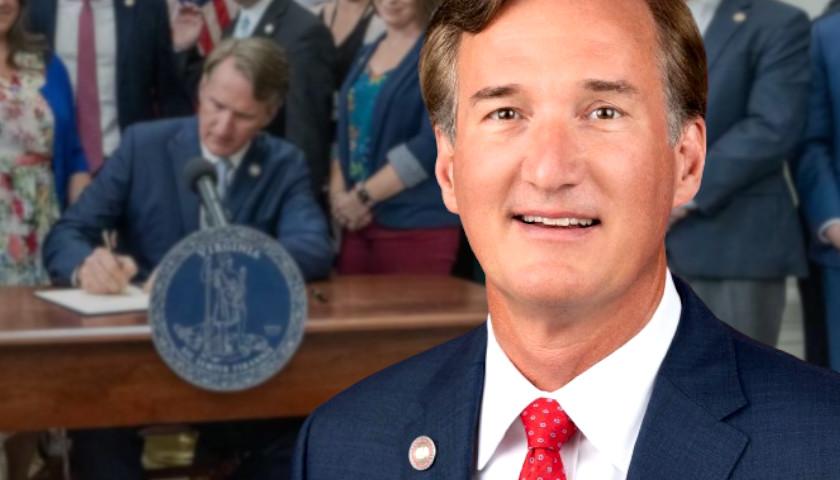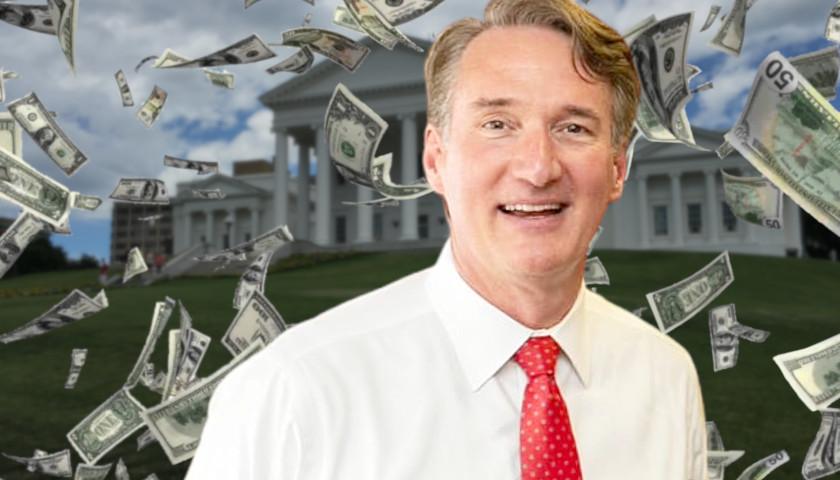by Madison Hirneisen
With just a few weeks left in the legislative session, Virginia lawmakers in the House and Senate disagree on whether or not a key piece of Gov. Glenn Youngkin’s proposed budget amendments – $1 billion in tax cuts – should be included in the state’s amended spending plan.
Proposed amendments to the biennial budget presented by both the House and Senate money committees Sunday, reveals disagreement between the two chambers over the inclusion of Youngkin’s proposed $1 billion in tax reductions.
When announcing his proposed budget amendments in December, the governor said he wanted to lower the top individual tax rate, increase the standard deduction for individual and joint filers, and cut the corporate tax rate. The House’s proposed budget amendments account for these proposed cuts, while the reductions are not included in the Senate’s proposed amendments to the state spending plan.
The $1 billion in additional proposed tax cuts would follow $4 billion in reductions included in the budget signed last summer, but lawmakers disagree about whether or not to take the cuts a step further this year.
“To go further at this time would be premature given the inflationary pressures our economy has been experiencing, and I believe we are still catching up from the reductions made during the Great Recession,” Senate Finance Committee Co-Chair Janet Howell, D-Fairfax, told the committee during Sunday’s budget presentation.
Legislation that would enact Youngkin’s proposals to increase the standard deduction, lower the top individual tax rate and slash the corporate tax rate were advanced by the House of Delegates late last month, but companion bills were blocked in a Senate committee.
Despite pushback on the proposals from Democrats, Youngkin expressed optimism Sunday that by working with the chairs of the Senate and House money committees, the state “can get the job done for Virginians.”
“When I presented my proposed budget amendments in December, I said we needed to lower taxes to make Virginia more competitive for families and businesses, invest more in education to help children recover from learning loss, invest more to recruit 2,000 new law enforcement heroes, and take a major first step in transforming our behavioral health system,” Youngkin said. “Those are still our goals, and I look forward to reviewing today’s proposals from the House and Senate.”
Each chamber will likely tinker with the proposed amendments and take a vote this week. Later this month, a conference committee is expected to meet to hammer out budget compromises between the two chambers before the end of the legislative session, which is expected to adjourn Feb. 25.
While disagreement on the proposed $1 billion in tax cuts remains, lawmakers seem to have found common ground on raises for public employees.
Both the House and Senate amended spending plans include funding for 2 percent salary increases for public workers, including state employees and teachers. The 2 percent would be on top of a 5 percent pay increase for these workers, which was approved during the last session and will take effect in the next fiscal year that begins July 1.
The Senate’s proposed budget also includes funding for $1,000 bonuses for teachers and state employees, which would be distributed in December.
Senate Majority Leader State Sen. Richard Saslaw, D-Fairfax, told committee members Sunday the raises would “recognize the importance of our teachers and staff.”
Both the Senate and House proposed budgets also include millions in additional funding to support additional teachers aids in classrooms. Specifically, the House budget includes 38 million for additional reading and math specialists, while the Senate’s proposed budget includes $38.6 million to support more “instructional aids” in classrooms.
The budgets also include funding to address the shortfall in basic aid for school divisions, who could receive millions less in state aid than administrators originally expected due to an error in a state calculation tool unless action by lawmakers is taken.
The Senate budget includes $58.1 million to address the error in the calculation tool, while the House’s budget includes just $4.9 million. Appropriations committee staff noted the budget accounts for sales tax revenue increases, which is estimated to result in a net $84 million to school divisions this year.
Chair of the House Appropriations Committee Del. Barry Knight, R-Virginia Beach, said Sunday “no school division will have less money this year than was originally communicated to them.”
“We are, as always, working to ensure that our schools are appropriately funded, our teachers compensated and our students are fully poised to recover from COVID learning loss,” Knight said.
The proposed budget amendments from the House and Senate also include funding for the state’s behavioral health system in differing amounts. The Senate’s budget includes a $370.4 million “behavioral health package,” while the House budget proposes $166 million for “mental health and substance use disorder services.” Both budget proposals reveal lawmaker’s interest in providing additional funding for crisis services.
Through his proposed budget amendment, Youngkin asked lawmakers for $230 million to overhaul the state’s behavioral health system under a plan announced in December. The governor’s approach seeks to increase the amount of mobile crisis units in the commonwealth, retain behavioral health workers and increase short-term crisis bed capacity.
The Senate and House will vote on their proposed budget amendments this week.
– – –
Madison Hirneisen is a staff reporter covering Virginia and Maryland for The Center Square. Madison previously covered California for The Center Square out of Los Angeles, but recently relocated to the DC area.
Photo “Governor Glenn Youngkin” by Gov. Glenn Youngkin.

